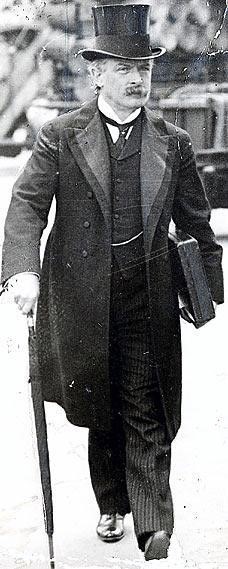
Lloyd George – a Birmingham anniversary
February 5th marks the anniversary of the granting of the freedom of the city of Birmingham to David Lloyd George in 1921. At this time, Lloyd George had been prime minister for five years and was probably at the peak of his political success. He had won the War first through his vigorous pursuit of arms and supplies as Minister of Munitions and then as head of the War Cabinet. He gained a great victory in the 1918 general election and looked capable of building a new centre party to dominate British politics. He had laboured for the Peace through his diplomacy at Versailles. He had begun the post-war reconstruction with his pledge to make Britain a fit country for heroes to live in. In Ireland he brought about the settlement which led to the independence of the Free State.
There was a darker side to Lloyd George’s government of course from the splitting of the Liberal family, to the accusation that he was abandoning Cabinet government, to the ‘black and tans’. But in early 1921, the tempests which would blow down the coalition, the corruption charges over the sale of honours and peerages and the foreign policy failures which ended in the Chanak crisis were yet to rock Lloyd George with their fullest force.
The ceremony of the granting of the freedom of the city of Birmingham to the Rt. Hon David Lloyd George O.M, M.P took place at the Town Hall on Saturday 5 February 1921 at 12 noon. It was from that very venue that twenty years before, Lloyd George had barely escaped with his life. The Boer War was raging in South Africa and Lloyd George was trying to give a speech taking a pro-Boer standpoint and denouncing Britain’s role in the conflict. The choice of Birmingham for the speech was provocative and dangerous. The city was the political fiefdom of the Chamberlain family and Joseph Chamberlain, who had been responsible for splitting the Liberal party over home rule for Ireland in 1886, was also the Colonial Secretary in the Unionist government pursuing the war against the Boers. The pro-Unionist, patriotic crowd, were enraged at Lloyd George’s stance and shouted him down with cries of “Traitor”. It got so ugly that Lloyd George had to be smuggled out of the Town Hall disguised in policeman’s uniform. The riot went on even after Lloyd George got away and left one man dead.
Presumably the 1921 ceremony went more smoothly. There are some relevant images and text about these events at an excellent Birmingham local history site called Digital Ladywood which can be accessed at
http://www.digital-ladywood.org.uk
